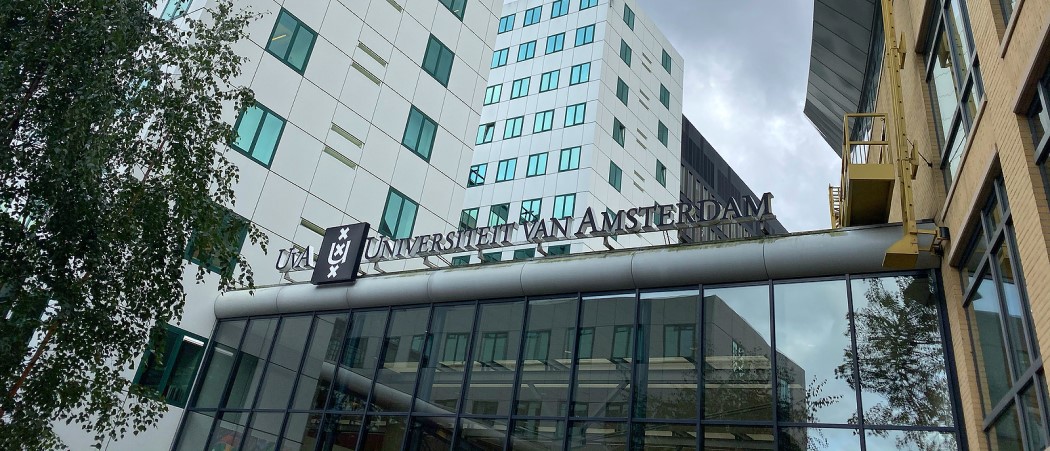
The UvA and world-leading technology company Bosch have agreed to extend their established collaboration with the launch of a new public-private research lab. Delta Lab 2 - the follow-up to the successful collaboration Delta Lab 1 - will focus on the use of artificial intelligence and machine learning for applications in computer vision, generative models and causal learning. Delta Lab 2 will form part of ICAI, the national Innovation Center for AI, headquartered on the Amsterdam Science Park. The lab will be headed by the UvA’s Dr Jan-Willem van de Meent and Prof. Theo Gevers. Dr Eric Nalisnick will be the daily lab manager.
‘For Bosch, collaboration and close exchange with academic institutions is an essential component of our efforts in the development of safe, robust, and explainable AI. By expanding and realigning the previously successful collaboration in the UvA-Bosch Delta Lab, we are realising our ambition of combining cutting-edge research with high application potential,’ says Michael Fausten, Senior Vice President and Head of the Bosch Center for Artificial Intelligence (BCAI).
In the Delta 2 lab, ten PhD students, one postdoc and one lab manager will work on projects over the next five years with a total budget of €5.2 million. aiming for new research on deep (causal and partial differential equation-based) generative models; certainty and causality in machine learning; and 3D computer vision.
Building on success
Gevers: ‘The collaboration between UvA and Bosch in Delta Lab 1 has been a great success. We want to build on that success with new fundamental research into machine learning and computer vision technologies. We are grateful to Bosch for continuing to invest in fundamental research. We also thank the previous directors and researchers for all their efforts, and we will continue to work enthusiastically on unexplored areas of AI.’
Van de Meent: ‘We are excited to continue our productive collaboration. Working with Bosch is a win win. It not only facilitates uptake of AI innovations in industry, but also provides a wealth of use cases that can inspire new innovations, such as incorporating physical knowledge into models, reasoning about their causal structure, and evaluating the level of confidence that can be attributed to predictions.’
About ICAI
The Innovation Center for Artificial Intelligence (ICAI) is a national network focused on public-private technology and talent development between knowledge institutions, industry and government in the field of artificial intelligence. The Netherlands has an abundance of talent, world-class research, a long-standing tradition in AI education, and is one of the world's leading countries in terms of innovative power. ICAI brings these components together in a unique national initiative. Its innovation strategy is organised around industry labs (research labs that include multi-year strategic collaborations with industry).
ICAI has its head office at Science Park Amsterdam; the 29 ICAI labs are based in 10 locations including Amsterdam (UvA, VU). Other ICAI labs based at the UvA include: AIRlab Amsterdam (joint industry lab with Ahold Delhaize), Police Lab AI (UvA, Utrecht University, TU Delft and the Dutch police), Elsevier AI Lab (UvA, Vrije Universiteit Amsterdam and Elsevier), Atlas Lab (UvA and TomTom), AIM Lab (UvA and Inception Institute of Artificial Intelligence Ltd.).
About Bosch
Robert Bosch GmbH is a multinational technology and services company. Its operations are divided into four business sectors: Mobility Solutions, Industrial Technology, Consumer Goods, and Energy and Building Technology.
For Bosch, artificial intelligence is a key technology. From 2025, all Bosch products will have AI or be developed or manufactured with its help. To this end, the Bosch Center for Artificial Intelligence (BCAI) was established back in 2017 from pre-existing units. The BCAI strengthens Bosch's leadership in industrial AI and develops safe, robust, and explainable AI solutions at seven international locations for application throughout the company.
More information on the previous UvA-Bosch Delta Lab cooperation can be found here.
This article was first published on 18 March by UvA.




 A unique international forum for public research organisations and companies to connect their external engagement with strategic interests around their R&D system.
A unique international forum for public research organisations and companies to connect their external engagement with strategic interests around their R&D system.